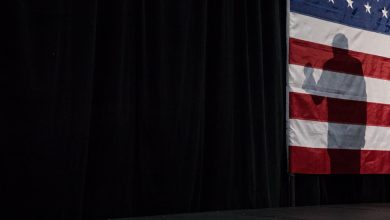Will the Courts Hobble Our Response to the Next Pandemic?

Should the federal government have the power to address broad public health emergencies?
Last week, a federal judge effectively answered no.
The judge, Kathryn Kimball Mizelle, who serves on a Federal District Court in Florida and was appointed by former President Donald Trump, issued a nationwide injunction blocking the government’s mask mandate for planes, trains, buses and other forms of public transportation.
No matter how you feel now about masks, you should be alarmed by her decision. Judge Mizelle’s ruling could prevent the federal government from effectively and nimbly responding to future pandemics. And long after this pandemic has faded, her approach and rationale could undermine the federal government’s authority to confront other big problems, from occupational health and safety to climate change.
The Biden administration has appealed the decision to the U.S. Court of Appeals for the 11th Circuit, but that carries its own risks. Six of the 11 actives judges on that court are Trump appointees. A loss there by the Justice Department could permanently weaken the government’s authority to respond to health emergencies.
Up until very recently, the statutory authority of the Centers for Disease Control and Prevention to try to curb the interstate or international transmission of an infectious, deadly disease was not in doubt. The Public Health Service Act authorizes the C.D.C. to “make and enforce such regulations” that in its “judgment are necessary to prevent the introduction, transmission or spread of communicable diseases.”
The law provides that the C.D.C. can enforce “sanitation” and “other measures” to achieve this goal. The transportation mask requirement is crucial to the agency’s ability to meet its congressional mandate because travelers in a pandemic can unknowingly carry a virus across the country, dispersing it along the way.
Since the New Deal, federal courts have generally declined to strike down reasonable agency regulations. And for good reason. In writing laws, Congress cannot envision or micromanage every possible scenario. Unexpected events — say, perhaps, a global public health crisis — create novel challenges. So, Congress delegates rule-making power to agencies, which develop and issue evidence-based regulations to combat complex problems.
Agencies do not have, nor should they have, unfettered authority to act, but courts should defer to their reasonable interpretations of federal law. In this case, Congress delegated powers to the C.D.C., a scientific agency charged with protecting the nation’s health.
Judge Mizelle’s opinion rejects this longstanding consensus over the way government works. Adopting a strained and tendentious reading of the word “sanitation,” she concluded that the C.D.C. exceeded its legal authority. In her view, it was untenable that the “C.D.C. claims a power to regulate how individuals behave in such diverse places as airplanes, train stations, marinas and personal vehicles used in ride-sharing services across town.”
In reality, the C.D.C. claims no power that Congress had not explicitly given it. An agency tasked with slowing the interstate spread of a highly infectious virus would regulate interstate travel, which occurs because “diverse places” like airplanes and train stations are often crowded, and passengers are confined for long periods of time.
Under Judge Mizelle’s logic, the agency would also have no authority under existing law to impose a mask mandate in a future pandemic — say if a new and more dangerous variant of the coronavirus strikes, as it might. It wouldn’t matter how deadly the future variant or pandemic was. Or how communicable the disease was in airplanes or trains. Or the effectiveness of masks in slowing spread. Or whether the pathogen evaded vaccines. Her peculiar reading of the statute restricts the C.D.C.’s ability to respond to a future health crisis, handcuffing it when the agency is most needed.
Judge Mizelle lacks experience or expertise in public health. The C.D.C., conversely, is staffed by virologists, epidemiologists and other highly respected scientists accountable to the president, who in turn can be held to account by the public. A constitutional democracy is challenged when a lone judge, lacking competence in public health, can unilaterally dismantle a nationwide public health policy during a crisis. We can’t think of a worse way for Covid-era masking to end than at the hand of a single federal judge sitting in the Middle District of Florida.
Judge Mizelle is among a cadre of Trump appointees to the federal bench who are using the foil of pandemic public health regulations to dismantle the national government’s legal authority to solve problems. They have sought to change underlying principles of administrative law, limiting the type of regulations that agencies can create and letting individual judges substitute their policy views for agencies’ reasoned interpretations. Their push includes eliminating the legal doctrine of





